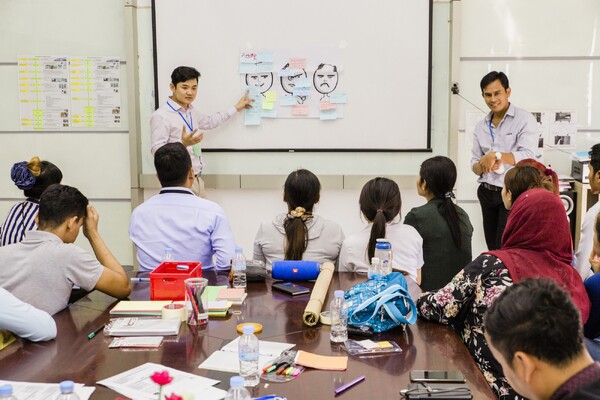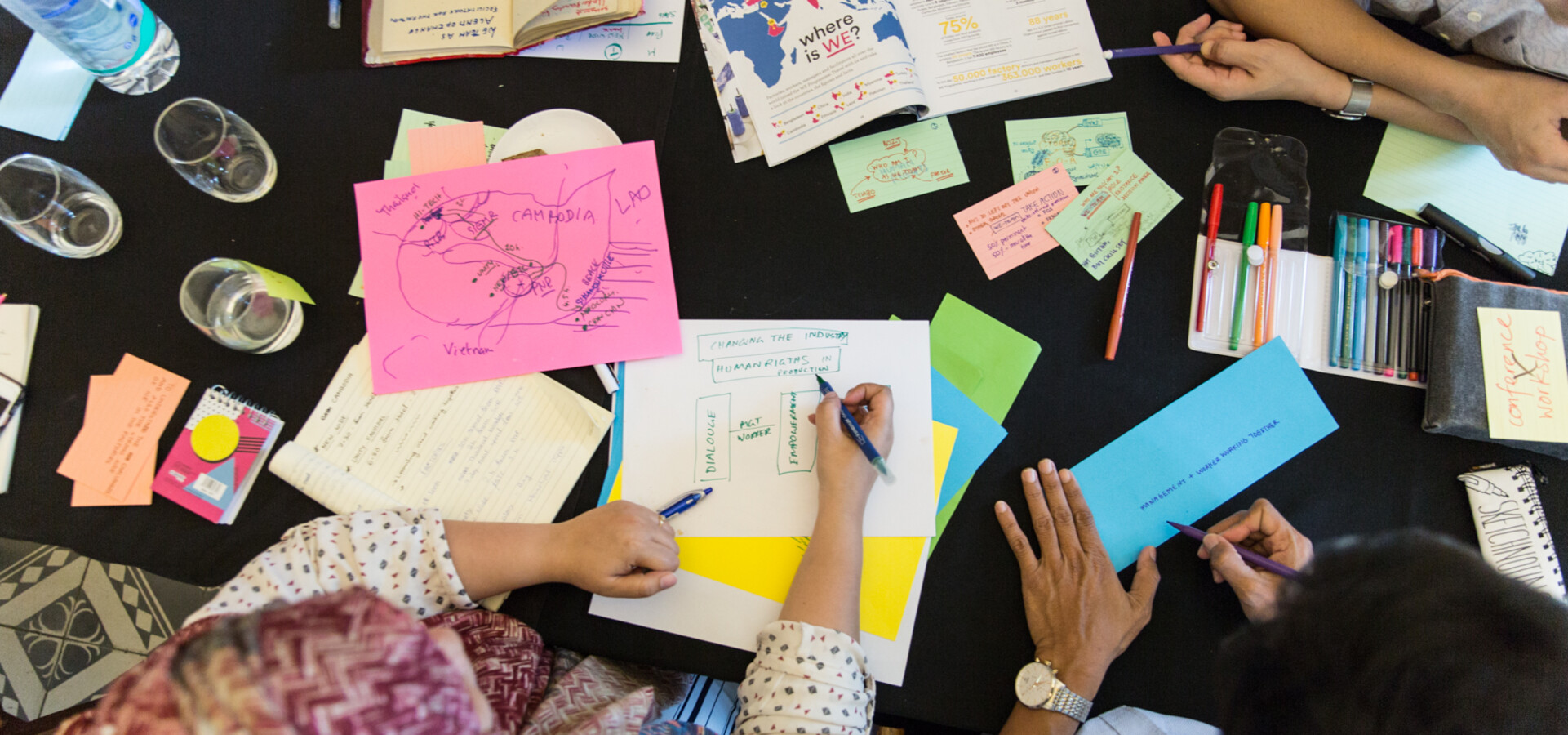We see change as an opportunity and we understand that we are part of this transformation and must live and breathe it. In order to do this, we have cultivated the mindset and the resolve to embrace other viewpoints.
We recognise that, when it comes to sustainability, we as a company are still part of the problem. We have made it our mission to become an ever greater part of the solution, however. We intend to use our creative, entrepreneurial energy to actively shape change. To do this, we need an unwavering desire for change, but we also need the courage to take risks and make mistakes. We have to be prepared to change our point of view and reinvent ourselves time and again. There are five methods and ways of thinking that can help us to do this.

Five approaches we believe in
Simplifying complex issues
The Cynefin framework
The term ‘cynefin’ is a Welsh word meaning ‘habitat’. Dave Snowden’s Cynefin framework categorises situations and systems according to how ‘disordered’, ‘obvious’, ‘complicated’, ‘complex’ or ‘chaotic’ they are. Categorising situations and systems in this way helps us decide what methods can be used and which approaches are possible to solve a problem, for example.
The challenges facing the world in its quest for sustainability tend, for the most part, to belong in the complex domain. There are certainly clear cause-and-effect relationships here, yet unfortunately these can often only be identified with hindsight. So whilst it may be possible to analyse the problem, the results do not necessarily enable predictions to be made that can be used as the basis for clear action in the future.
Even so, that doesn’t mean we have to sit back and watch the processes unfold by themselves. There may not be any definitive solutions, but with constant trial-and-error analysis, patterns begin to emerge that can be used to identify solutions. Experimenting brings us ever closer to our goal, one step at a time, and the solution swims into view.
The art of letting go and adapting to new things
Theory U
This is a situation most people will have encountered at work before. There’s something you want to achieve and all you encounter is opposition or a lack of interest. In our sustainability programmes, we experiment with a model for processes of change – Otto Scharmer’s ‘Theory U’ – to overcome obstacles and develop new approaches. Companies all around the world now use it to help them navigate far-reaching change processes.
Scharmer strongly believes that the mindset of those involved has a greater influence on decision-making than facts or perceived constraints. Exposing this mindset therefore becomes a central part of any change process. This is a difficult process and usually requires some form of coaching. After all, it calls on people to be open-minded, listen to themselves and acknowledge who they are. It also demands a willingness to really listen to others without judging their opinions.
Once people are able to identify pigeonhole thinking, prejudices, hierarchies and their own fears and then let them go, solutions will emerge which didn’t seem possible before. We then adopt these solutions and implement them with the involvement of everyone affected – for example by way of prototyping. We have found that this produces new, holistic solutions that have a strong foundation and are more widely accepted.
Developing strength together
Co-creation
We believe in the power of co-creation. Sustainable solutions emerge when all those who are important to a process are actively involved, working together to achieve the result. Time and again, our experience has shown that one person with expert knowledge is not enough to deal with the complex challenges we face. It is far more important that we work closely with those people directly affected so as to shed light on the situation, identify patterns, bring about small changes and see whether the system will change in the way we want it to. By working together, or co-creating, the solutions proposed will subsequently be supported by those affected, thereby ensuring there is a greater chance of success and lasting change.
Approaching a solution, one step at a time
Prototyping
Prototyping is the process of getting closer to a finished end product or optimised process, one step at a time. Taking the existing product or process as a starting point, small changes are made one step at a time and the effects analysed. This means that a series of tests can be initiated with minimal testing effort. Whatever works well is adopted as an adaptation. Conclusions can then be drawn from these small changes as to how feasible they are on a larger scale. We used this method, for example, to first explore the idea of the Tchibo Share project and then implement it, drawing on our experience, adapting the business model, the product range and our marketing communications, reflecting on it again, and improving it further. A prototype may also reveal that the solution previously envisaged does not work as expected and that an alternative solution is needed. Tchibo Share was discontinued at the end of 2020 because we were unable to attract enough customers to the service. We are now using the experience gained from rapid implementation and testing to develop a new concept for sustainable consumption in mainstream applications.
Prototypes can be developed using a 3D model, for example, which involves physically building the future you desire. This provides a variety of perspectives on the ongoing process. The model helps to highlight differences, but also common viewpoints – bringing both advantages and disadvantages into sharp focus.
Empowering People
Facilitation
Facilitation is a process usually carried out by independent third parties and is of particular relevance in any kind of change process. The purpose of facilitation is to combine the strengths of all those involved, enabling them to achieve the change they are looking for. This creates a setting and a framework within which every voice can be heard and all parties are treated as equals. Adopting this approach allows all those involved to assume greater personal responsibility, encouraging them to use their own initiative. We firmly believe that providing facilitation as part of a change process can significantly increase the chances of a successful outcome. This is something we have already seen in countless projects and meetings. The principle of facilitation also underpins our WE programme, which takes a participative, dialogue-based approach in order to guide and support the envisaged change.
